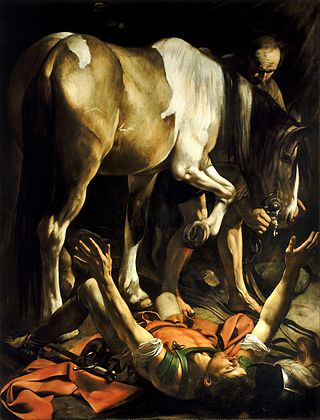Related Research Articles

Dementia is the general name for a decline in cognitive abilities that impacts a person's ability to perform everyday activities. This typically involves problems with memory, thinking, and behavior. Aside from memory impairment and a disruption in thought patterns, the most common symptoms include emotional problems, difficulties with language, and decreased motivation. The symptoms may be described as occurring in a continuum over several stages. Dementia ultimately has a significant effect on the individual, caregivers, and on social relationships in general. A diagnosis of dementia requires the observation of a change from a person's usual mental functioning and a greater cognitive decline than what is caused by normal aging.

A nun is a woman who vows to dedicate her life to religious service and contemplation, typically living under vows of poverty, chastity, and obedience in the enclosure of a monastery or convent. The term is often used interchangeably with religious sisters who do take simple vows but live an active vocation of prayer and charitable work.

A convent is a community of monks, nuns, friars or religious sisters. Alternatively, convent means the building used by the community. The word is particularly used in the Catholic Church, Lutheran churches, and the Anglican Communion.

A child prodigy is a person under the age of ten who produces meaningful work in some domain at the level of an adult expert. The term is also applied more broadly to young people who are extraordinarily talented in some field.
The neuroscience of religion, also known as neurotheology and as spiritual neuroscience, attempts to explain religious experience and behaviour in neuroscientific terms. It is the study of correlations of neural phenomena with subjective experiences of spirituality and hypotheses to explain these phenomena. This contrasts with the psychology of religion which studies mental, rather than neural states.
Aging of the brain is a process of transformation of the brain in older age, including changes all individuals experience and those of illness. Usually this refers to humans.
Neuroscience and intelligence refers to the various neurological factors that are partly responsible for the variation of intelligence within species or between different species. A large amount of research in this area has been focused on the neural basis of human intelligence. Historic approaches to studying the neuroscience of intelligence consisted of correlating external head parameters, for example head circumference, to intelligence. Post-mortem measures of brain weight and brain volume have also been used. More recent methodologies focus on examining correlates of intelligence within the living brain using techniques such as magnetic resonance imaging (MRI), functional MRI (fMRI), electroencephalography (EEG), positron emission tomography and other non-invasive measures of brain structure and activity.
A religious experience is a subjective experience which is interpreted within a religious framework. The concept originated in the 19th century, as a defense against the growing rationalism of Western society. William James popularised the concept. In some religions, this may result in unverified personal gnosis.
David A. Snowdon, is an epidemiologist and professor of neurology, formerly at the Sanders-Brown Center on Aging at the University of Kentucky. His research interests include antioxidants and aging, and the neuropathology of Alzheimer's disease, especially predictive factors in early life and the role of brain infarction.
Cognitive reserve is the mind's and brain's resistance to damage of the brain. The mind's resilience is evaluated behaviorally, whereas the neuropathological damage is evaluated histologically, although damage may be estimated using blood-based markers and imaging methods. There are two models that can be used when exploring the concept of "reserve": brain reserve and cognitive reserve. These terms, albeit often used interchangeably in the literature, provide a useful way of discussing the models. Using a computer analogy, brain reserve can be seen as hardware and cognitive reserve as software. All these factors are currently believed to contribute to global reserve. Cognitive reserve is commonly used to refer to both brain and cognitive reserves in the literature.

Conversion to Christianity is the religious conversion of a previously non-Christian person that brings about changes in what sociologists refer to as the convert's "root reality" including his social behaviors, thinking and ethics. The sociology of religion indicates religious conversion was an important factor in the emergence of civilization and the making of the modern world. Conversion is the most studied aspect of religion by psychologists of religion, but there is still very little actual data available. Neurological studies have determined that conversion is not the result of pathology.
Brain training is a program of regular activities purported to maintain or improve one's cognitive abilities. The phrase “cognitive ability” usually refers to components of fluid intelligence such as executive function and working memory. Cognitive training reflects a hypothesis that cognitive abilities can be maintained or improved by exercising the brain, analogous to the way physical fitness is improved by exercising the body. Cognitive training activities can take place in numerous modalities such as cardiovascular fitness training, playing online games or completing cognitive tasks in alignment with a training regimen, playing video games that require visuospatial reasoning, and engaging in novel activities such as dance, art, and music.

Jean Decety is an American–French neuroscientist specializing in developmental neuroscience, affective neuroscience, and social neuroscience. His research focuses on the psychological and neurobiological mechanisms underpinning social cognition, particularly social decision-making, empathy, moral reasoning, altruism, pro-social behavior, and more generally interpersonal relationships. He is Irving B. Harris Distinguished Service Professor at the University of Chicago.
The Nun Study of Aging and Alzheimer's Disease is a continuing longitudinal study, begun in 1986, to examine the onset of Alzheimer's disease. David Snowdon, an Epidemiologist and the founding Nun Study investigator, started the Nun Study at the University of Minnesota, later transferring the study to the University of Kentucky in 1990. In 2008, with Snowdon's retirement, the study returned to the University of Minnesota. The Nun Study was very briefly moved from the University of Minnesota to Northwestern University in 2021 under the directorship of Dr. Margaret Flanagan. The Nun Study is currently housed at the University of Texas Health San Antonio in the Bigg's Institute for Alzheimer's and Neurodegenerative diseases under the continued directorship of Neuropathologist, Dr. Margaret Flanagan.
Andrew Newberg is an American neuroscientist who is a professor in the Department of Integrative Medicine and Nutritional Sciences and the director of research at the Marcus Institute of Integrative Health at Thomas Jefferson University Hospital, previously an adjunct professor of religious studies and a lecturer in psychology in the Biological Basis of Behavior Program at the University of Pennsylvania.
Cognitive science of religion is the study of religious thought, theory, and behavior from the perspective of the cognitive and evolutionary sciences. Scholars in this field seek to explain how human minds acquire, generate, and transmit religious thoughts, practices, and schemas by means of ordinary cognitive capacities.

Trance is a state of semi-consciousness in which a person is not self-aware and is either altogether unresponsive to external stimuli or is selectively responsive in following the directions of the person who has induced the trance. Trance states may occur involuntarily and unbidden.
The Mediterranean-DASH Intervention for Neurodegenerative Delay diet, or more commonly, the MIND diet, combines portions of the DASH diet and the Mediterranean diet. Both the DASH diet and the Mediterranean diet have been shown to improve cognition; however, neither were developed to slow neurodegeneration. Therefore, a team at Rush University Medical Center, headed by Martha Clare Morris, worked to create the MIND diet. Like the DASH and Mediterranean diets, the MIND diet emphasizes the intake of fresh fruit, vegetables, and legumes. The MIND diet also includes recommendations for specific foods, like leafy greens and berries, that have been scientifically shown to slow cognitive decline. Recent research has shown that the MIND diet may be more effective at reducing cognitive decline than either the Mediterranean or DASH diets alone, though a cause and effect relationship has yet to be determined. Additional testing has shown that the level of adherence to the MIND diet also impacts the diet's neuro-protective effects.
Joseph A. Bulbulia is a Professor of Psychology in the Faculty of Science at Victoria University of Wellington (2020-present). He was the Maclaurin Goodfellow Chair in the School of Humanities, Faculty of Arts at University of Auckland (2018-2020). He previously served as a Professor in the School of Art History, Classics and Religious Studies at Victoria University of Wellington. Bulbulia is regarded as one of the founders of the contemporary evolutionary religious studies. He is a past president of the International Association for the Cognitive Science of Religion and is currently co-editor of Religion, Brain & Behavior. Bulbulia is one of four on the Senior Management Team of the New Zealand Attitudes and Values Study, a 20-year longitudinal study tracking over 15,000 New Zealanders each year. He is an associate investigator for Pulotu, a database of 116 Pacific cultures purpose-built to investigate the evolutionary dynamics of religion. In 2016 Bulbulia won a Research Excellence Award at Victoria University.
The Rush Alzheimer's Disease Center (RADC) is an indepependent research center located in the Medical College of Rush University Medical Center. The Rush Alzheimer's Disease Center is one of the Alzheimer's Disease Research Centers in the U.S. designated and funded by the National Institute on Aging.
References
- 1 2 3 David Eagleman, The Brain, Pantheon Books, 2015, p. 28-29
- ↑ Rush University